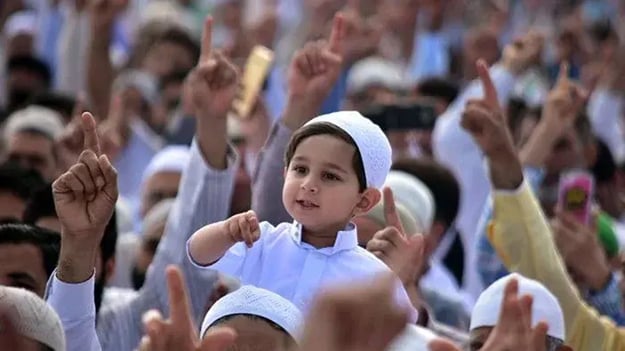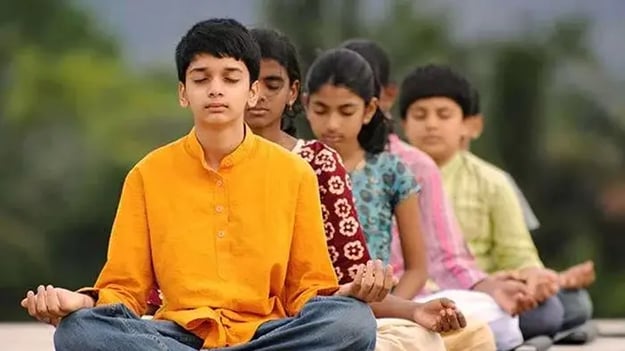- Strengthened Bonds
- Sense of Belonging
- Predictability and Stability
- Communication and Connection
- Values Reinforcement
- Emotional Support
- Memorable Experiences
- Resilience and Coping Skills
- Religious Ceremonies
- Daily Routines
- Family Celebrations
- Cultural Festivals
- Seasonal Observances
- Family Traditions
- Spiritual Practices
- Educational Rituals
Introduction

With the busy schedules of parents at work and kids with studies, making family time is a bit difficult. Family rituals and traditions hold immense significance in creating lasting memories, strengthening bonds, and providing a sense of consistency amid life's changes. These rituals, whether daily routines or special celebrations, play a vital role in nurturing well-being and happiness within the family.
Ordinary rituals like family dinners or bedtime stories establish regularity and a sense of togetherness in everyday life. They offer opportunities for open communication and shared experiences that build trust and closeness. Meanwhile, extraordinary rituals such as annual vacations or holiday celebrations create cherished memories and deepen family connections through unique traditions and shared adventures.
By following these rituals, family members create a supportive environment where each family member feels valued and understood.
Popular Topics

Understanding Bournvita: Relationship with Milk & Sugar Content Explained
Reviewed By Kaushiki Gangully,

What is Vitamin D deficiency? Spotting early signs of Vitamin D deficiency
Reviewed By Divya Gandhi, Dietitian

How to help your child retain strength throughout the day
Reviewed By Apurva Surve, Sports Nutritionist

Understanding How Vitamin D Leads to Strength
Reviewed By Kejal Shah, Nutrition Expert
What Are Family Rituals?
Family rituals are regular, repeated activities or routines that hold symbolic meaning and significance for family members. These rituals can be daily, weekly, or tied to specific occasions, and they often involve shared actions, traditions, or customs that strengthen family bonds and create a sense of belonging. Family rituals may include:
- Daily Routines: Such as eating meals together, bedtime routines like reading stories, or morning rituals like having breakfast as a family.
- Weekly Traditions: Like family game nights, movie nights, or attending religious or cultural ceremonies together.
- Holiday Celebrations: Such as Diwali, Holi, Eid, Christmas, or other cultural festivals celebrated with specific rituals and customs unique to each family.
- Special Milestones: Birthdays, anniversaries, graduations, or family reunions are celebrated with traditions that mark these occasions uniquely within the family.
- Vacations or Outings: Family trips or outings that become regular events, creating memories and reinforcing family bonds through shared experiences.
Benefits Of Having Family Rituals

Having family rituals offers numerous benefits that contribute to the well-being and happiness of family members:
Strengthened Bonds
Rituals create opportunities for regular, meaningful interactions among family members, creating stronger emotional connections and a sense of togetherness.
Sense of Belonging
By participating in rituals, family members feel a deeper connection to their family unit, improving the sense of identity and belonging within the family.
Predictability and Stability
Rituals provide structure and predictability in daily life, offering stability and security, especially during times of change or uncertainty.
Communication and Connection
Rituals encourage open communication and shared experiences, promoting understanding, trust, and supportive relationships among family members.
Values Reinforcement
Many rituals are rooted in family values and traditions, providing opportunities to pass down cultural heritage, beliefs, and moral teachings to younger generations.
Emotional Support
Engaging in rituals creates a supportive environment where family members can express emotions, seek comfort, and celebrate achievements or milestones together.
Memorable Experiences
Rituals often involve special activities or traditions that create lasting memories and strengthen family cohesion through shared positive experiences.
Resilience and Coping Skills
Regular participation in rituals can help family members develop resilience and coping skills by providing a sense of continuity and stability during challenging times.
Types Of Family Rituals

Rituals hold significant cultural and spiritual importance, enriching family life with traditions that span generations. Here are several types of family rituals commonly observed:
1. Religious Ceremonies
Families participate in religious rituals such as puja, arati and festivals like Diwali, Eid, Holi, and Christmas, which include prayers, offerings, and community gatherings.
2. Daily Routines
These include morning prayers (like reciting mantras or performing aarti), meals together, and bedtime rituals involving stories from epics like Ramayana or Mahabharata.
3. Family Celebrations
Birthdays, anniversaries, and weddings are celebrated with rituals that may include special prayers, traditional attire, and festive meals prepared with cultural significance.
4. Cultural Festivals
Rituals during festivals such as Raksha Bandhan, Navratri, and Ganesh Chaturthi involve rituals, music, dance, and traditional foods.
5. Seasonal Observances
Rituals linked to agricultural cycles, such as Pongal, Baisakhi, and Onam, include rituals, feasts, and cultural performances.
6. Family Traditions
Unique to each family, these may include visiting ancestral homes, honoring ancestors during Pitru Paksha, or performing rituals specific to family achievements or milestones.
7. Spiritual Practices
Yoga, meditation, or participating in community service (seva) at religious institutions as a family are common, creating spirituality and a sense of community.
8. Educational Rituals
These include performing Saraswati Puja before starting formal education or conducting special prayers during exams for academic success.
Conclusion

Rituals are not just practices but pillars that uphold cultural heritage, strengthen familial bonds, and create spiritual growth. These traditions enrich daily life with meaning, connect generations through shared experiences, and imbue each moment with reverence and continuity.
The views expressed are that of the expert alone.
The information provided in this content is for informational purposes only and should not be considered a substitute for professional medical advice, diagnosis, or treatment. Always seek the advice of your physician or another qualified healthcare provider before making any significant changes to your diet, exercise, or medication routines.
References
https://raisingchildren.net.au/grown-ups/family-life/routines-rituals-relationships/family-rituals
https://hooplafun.com/blog-posts/f/the-role-of-rituals-creating-meaningful-family-traditions
https://samgoldstein.com/resources/articles/general/2024/beyond-tradition.aspx
https://foreverfamilies.byu.edu/creating-meaningful-family-traditions











